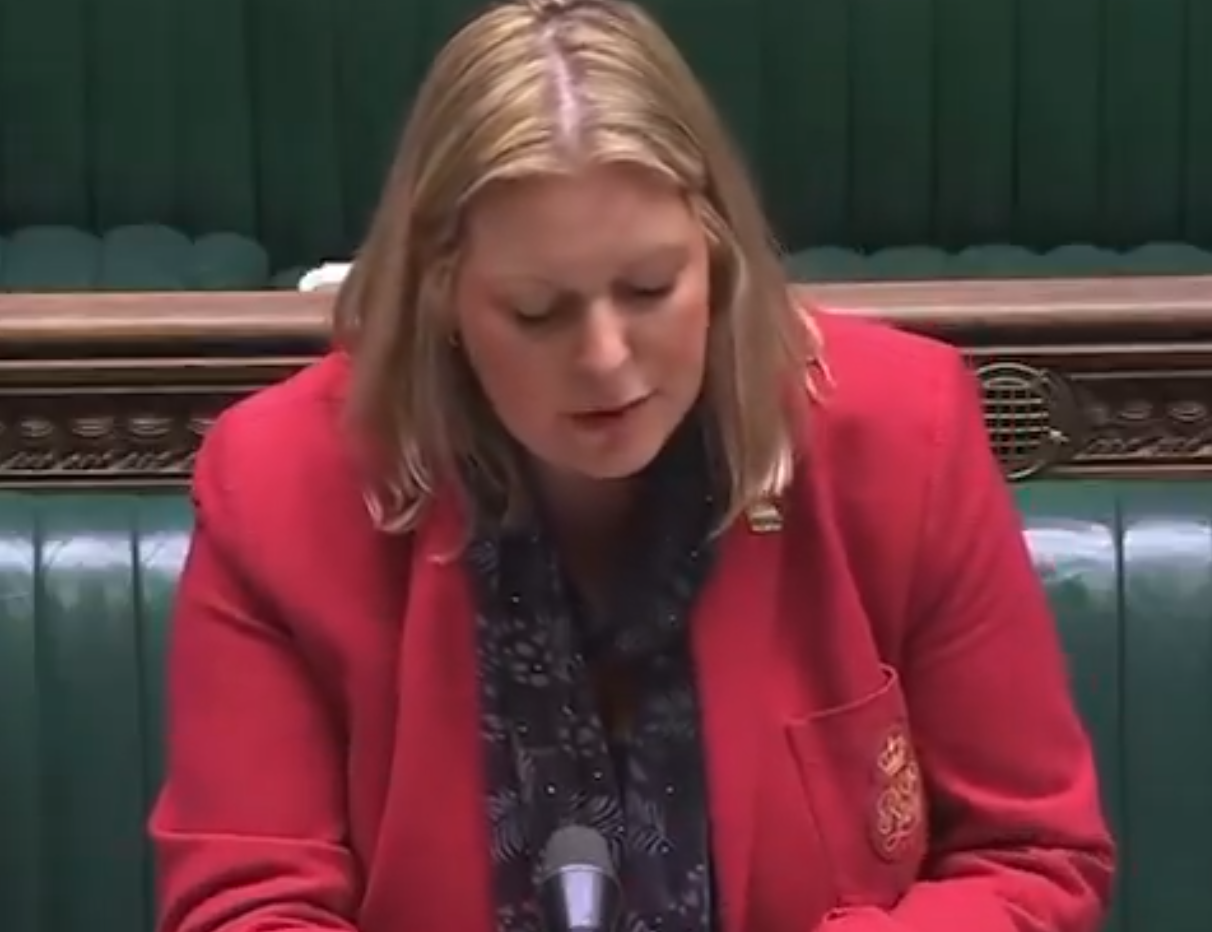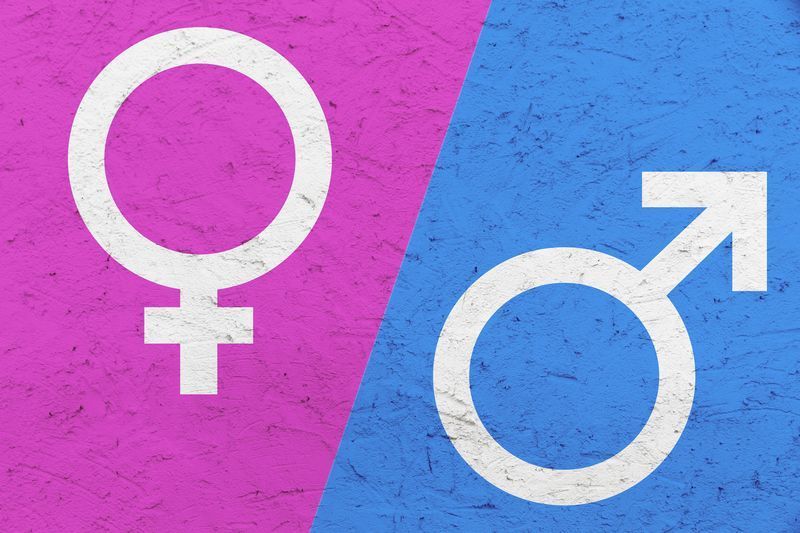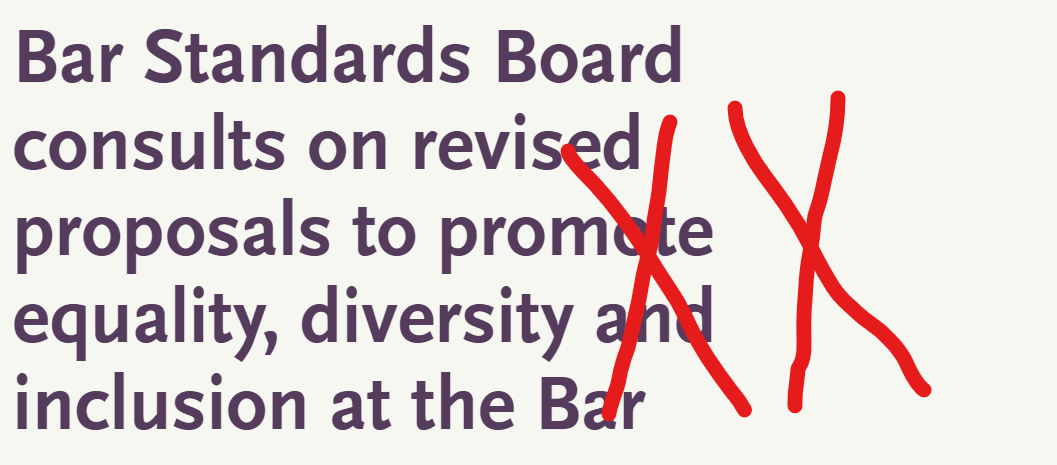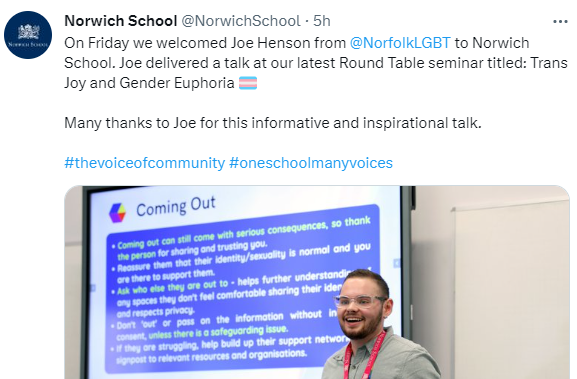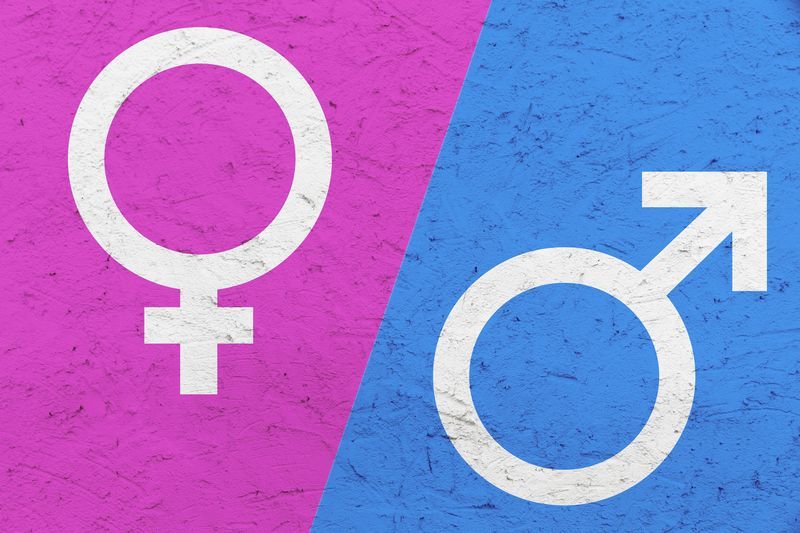Stonewall Chair Comes Unstuck on 'Trans' Issues
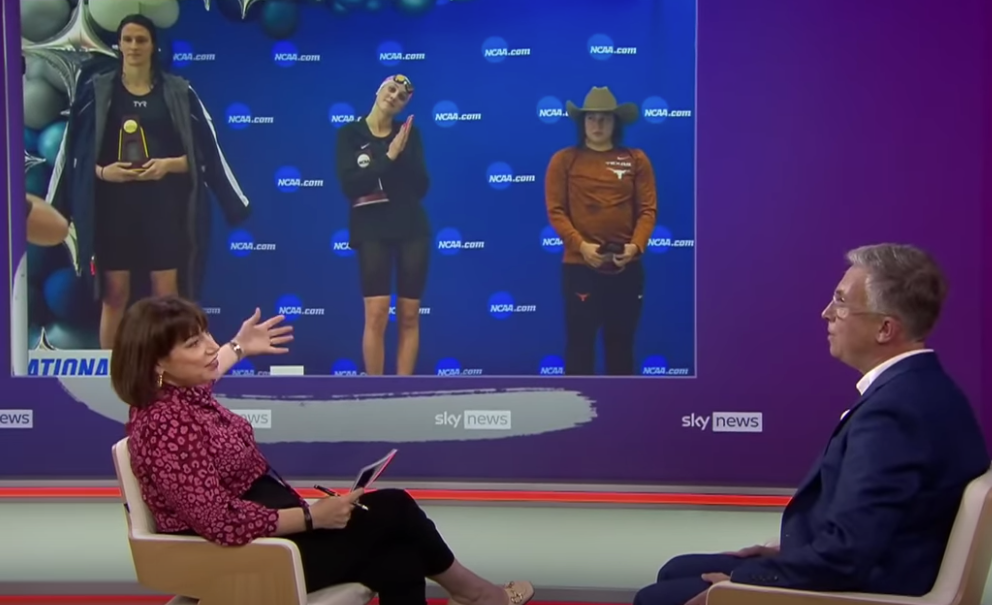
Saturday 22 July 2023
On Thursday night, 20th July, many of us who have been raising serious concerns about the so-called 'LGBT' charity Stonewall tuned into Sky News at 9pm to watch an interview conducted by Beth Rigby with Iain Anderson the current Chair of Stonewall. We witnessed what is commonly known as 'car crash TV', where a visibly sweating Anderson was finally asked the difficult questions by a clearly very well informed journalist. This was not before time; Stonewall have frequently been given a very easy ride by journalists, basking in their past achievements, with nobody willing to ask why a previously respected charity is now getting it so wrong.
See our exclusive transcript of the interview below.
Following the interview, Stonewall quickly released a
statement:
Stonewall’s Chair, Iain Anderson said: “We remain at the forefront of campaigning for trans people’s rights, and I’m sorry if yesterday’s interview caused concern amongst the LGBTQ+ community and its allies. My priority is fighting for trans people & securing a trans equality strategy that will support the trans community”
So that is clear then; Stonewall is no longer (and has not been for some time) a charity focused on protecting the rights of those who are same-sex attracted, the 'LGB', but is now all about the TQ+.
This needs to be made very clear to all organisations (including government departments) who are signed up to their various schemes to embed their views throughout workplaces, schools and society. It is time for those organisations to start listening to LGB Alliance, who are now the only charity in the UK concerned about the rights of those who are same-sex attracted.
It's long past time that Stonewall, and their #NoDebate mantra, were kicked out, and we don't have to wear rainbow laces to do it.
NB: Since transcription of the original interview, further shocking revelations and unseen footage has been released.
-----------------------------------------
Interviewer questions in Bold, Interviewee in Regular text.
Transcriber Comments: Clear audio. Time codes as per video on Sky News YouTube channel.
KEY: Unable to decipher = (inaudible + timecode), Phonetic spelling = (ph + timecode), Missed word = (? + timecode).
(TC: 00:00:00)
Gender politics, cancel culture, trans rights. Few organisations have found themselves at the centre of those debates more lately than Stonewall. The equality charity’s best known for helping to secure historic changes to the law in the name of gay rights and was championed for it. Today, though, its campaigning, especially on trans issues, is controversial. Internal splits have seen founder members walk away, questioning Stonewall’s new direction and purpose. I’ll be hearing from the chair of Stonewall, Iain Anderson, about what it’s like being caught up in a culture war and ask if he thinks he’s winning. Iain, thank you so much for joining us today. Now, it’s been ten years since same-sex marriage was legalised. Is that the greatest achievement of the gay rights movement and Stonewall, which you now chair?
Iain Anderson: So, I mean, this has been quite a joyous week in many ways. You’re right, ten years since equal marriage, long fought for. Stonewall right in the vanguard of arguing for equal marriage and over a quarter of a million couples have been able to get married since. There’s, I think, another 130,000 that are still in civil partnerships and maybe just very happy to be in exactly that status, but an amazing moment. But no, what are you pointing to is, I think, maybe some of our politicians thought this was the high water mark, all they needed to do. Nothing more to do, nothing more to see. Well, you know, in so many ways my concern is that we may have stalled in terms of LGBTQ progress. It certainly feels like that over the last four or five years.
I want to explore that a bit with you. Let’s start off with Stonewall. Do you accept that many gay men and women who founded Stonewall, who supported it over the years, think the organisation’s gone wrong, Iain? I mean, you say on your website that you stand for lesbian and gay people everywhere, but does that include gay and lesbian people that disagree with you on trans issues?
IA: So Stonewall took a decision to be trans-inclusive. I fully support that decision. It’s taken that decision in a very, very thoughtful way. Now, why? Because we have equalities legislation that protects people and allows them and wants them to be able to thrive. Now, you know, there is discussion about this, you’re absolutely right, but I do see, you know, as a man that grew up-, as a gay man that grew up in the 1980s and early ‘90s, some of the language that’s being used about trans people kind of rather reminds me of some of the language that was being used about people like me at that time. Calling for tolerance here. I’m calling for respect, I’m calling, as chair of Stonewall, to allow people to be able to fulfil their lives and flourish.
And will you talk to those gay and lesbian people, then, Iain, that think you’ve got it wrong? Do you have a conversation with them about it? Why they think that you’ve got it wrong and you don’t think you have.
IA: Yes, so I absolutely do. I talk to lots of people. Stonewall does talk to lots of people where there’s a differing perspective.
But will you-, for example, will you talk to the LBG Alliance? Will you talk to them? Because you’ve just said you think we should have tolerance and discussion. Will you talk to them?
IA: Yes, so I am absolutely up for a conversation for those who wish to see all LGBT people make progress, right? I come back to this: too much of this conversation is taking place on Twitter. So my challenge to the LGB Alliance, my challenge to those that don’t agree with me is, is there an opportunity, Beth, to work, to come together-,
You have to talk to them.
IA: Well, and create. So here’s my offer.
But you have to talk to them. I mean you just said-,
IA: Of course you do.
I’ll talk to people that basically are aligned with how I see it, and that’s not going to-,
IA: I’ve said something slightly different to you today. What I’m saying to you today is Britain needs a strategy for trans people. It needs perhaps a look at where we are with our equalities legislation, there is a debate about that as to whether or not we’re in the right place there. So that is what I’m saying to you today.
I want to just take a concrete example on this to help the viewer understand kind of where we’re getting into, you know, gay rights and trans rights and how they are the same but how they may be different, how some people see they’re different.
IA: Yes.
Do you think it’s a sign of prejudice for a lesbian not to want a sexual relationship with a transwoman, given that being a lesbian is about being attracted to female bodies and most transwomen have intact male bodies?
IA: So I-, you know, I believe people should, in a tolerant society, be able to choose the partner that they want to choose. I’m certainly not suggesting-, I’m not using words that would suggest that people are intolerant if they don’t have that preference.
Okay. The reason I ask you is your CEO, Nancy Kelley, was asked this question about lesbians who don’t wish to date transwomen, many of whom will be, as I said, will have physically male bodies, and she said nobody should ever be pressurised into dating or pressurised into dating people they aren’t attracted to, which is what you’ve essentially just said.
IA: Yes.
But then she went on to say this, Iain, and I’m interested to see what you think of this. She said, “But if you find that when dating you are writing off entire groups of people, like people of colour, fat people, disabled people, or trans people, then it’s worth considering how societal prejudice may have shaped your attraction.” So, you know, I mean, what do you think about that? She’s saying that lesbians who don’t want to date transwomen, many of whom, as we’ve talked about, might have male bodies, may feel that way because of societal prejudices that have shaped their attraction. What does that mean?
IA: So those are not my words. You know, I come back to what I’ve just said to you. Everybody, I think, in this society, has the opportunity to find the love-,
Do you agree with her?
IA: And find the respect that you-, I think in some ways a lot of that’s been taken out of context .
But the reason I ask is she’s your chief executive and I’ve given you the full quote, I haven’t taken it out of any context.
IA: No, no sure. I use my own words, Beth. I use my own words.
So you don’t agree with her.
IA: I use my own words, yes.
Because she was asked directly about this issue that I’ve just put to you and that’s what she said. You don’t agree with her.
IA: I say everybody in a free society should be able to have the partnership that they wish and the loving relationship-,
Was she wrong to say that? Do you think she was wrong to say that?
IA: I think a lot of it’s been taken out of context, as I say.
The reason I ask is that-, well, it’s not out of context, I’ve given you the full quote. But can you see why some lesbian women will have heard that and think, “Stonewall is not for me any more, that you’re basically criticising me for not wanting a relationship with a transwoman. I’m a lesbian.’ Can you see why that-,
IA: I can see why people say that and, again, I’m saying to you that those are not my words.
You don’t think she should have said it.
IA: I-, those are not my words.
Okay. Do you see why it’s a problem for-, because it seems to me you set up Stonewall to protect gay and lesbian people and to further their rights-,
IA: Yes.
And then your CEO’s saying something that if I was a lesbian woman I might think she’s trying to roll back my rights.
IA: Well-,
Or she’s criticising me in some way for not being attracted to transwomen.
IA: What I was saying earlier is I think we’ve got to get to a place where we can have a respectful approach, we can have a real conversation. My offer is that rather than being in this wider feedback group, we need to be able to think about a trans strategy for Britain. I mean-,
But that’s your CEO and you don’t agree with her, do you?
IA: If we go back-,
You don’t want to answer. I get it, you don’t want to publicly disagree with her on it, but you clearly don’t agree with that angle.
IA: I use different words.
Okay. Alright. Well, look, let’s go on to women’s rights, because many people believe, and this is what you’re talking about with the strategy, that trans rights are in opposition to women’s rights, particularly when it comes to women-only spaces. This has been under a lot of public discussion.
IA: Yes.
Given the strength of feeling that many ordinary women have about these issues, do you take them seriously?
IA: So I do. You know, we have legislation here in 2004, a Gender Recognition Act, which allowed people, allows people to change their gender.
Yes.
IA: As I remember, that wasn’t a particularly controversial thing back in 2004. (TC: 00:10:00) We then built on that and we had an Equalities [sic] Act in 2010, which did a whole number of things, including creating safe spaces for women. In fact, this whole conversation has kind of come up again lately in terms of some of the Scottish legislation, in terms of a Gender Recognition Certificate.
Yes.
IA: So we have an established-, we have established law in this country which does allow people to change gender and we’re not talking about-, and the latest census data makes this point. We’re not talking about millions of people. We’re talking about a quarter of a million people that are trans.
Sorry, we do have special exemptions as well for women-only spaces, right? Under the equality legislation.
IA: Exactly that. So there are protections that are in place. Those protections were put in place for a very, very good reason.
Do you support those protections?
IA: So I do support those protections, absolutely. Now, the question is do we-, and this is, I think, where some of the current conversation is, do we need to look at the legislation that’s currently in place? Does it work? I think it does work. And actually, on your point about-, I think where most women are, you know, there was some polling done last year to demonstrate-, I think it’s about-, only about 4% of women that don’t want to support trans rights. So, you know, back to this point, an awful lot of this is a bit megaphoned up at the minute. I think most people are very supportive of equality.
The question is about single-sex spaces, where women can access women-only services. Do you support-, I’m trying to get to whether you support that or not.
IA: Yes.
You do.
IA: So that’s within the Equalities Act. That’s within the 2010 legislation.
The reason why I’m asking you, Iain, is because in 2015 Stonewall wrote to the Women and Equalities Select Committee seeking a review of the Equality Act 2010 to remove exemptions such as access to single-sex spaces. Was that-, that was eight years ago. Have you changed your position since then? Do you now want to maintain single-sex spaces for women in some exemption?
IA: So I think, you know, Stonewall has always said that we build on the 2010 legislation. You know, we’ve been having that debate lately through the debate on the Gender Recognition Act in Scotland.
You did say in 2010 that you wanted to remove the exemptions.
IA: So I think there’s an overall case to come back to this point, Beth, to look at a respectful and a tolerant approach towards trans people and look at the competing rights and look at the competing responsibilities.
So do you back the exemptions or not?
IA: So, I mean, the legislation that’s there in 2010, I think we can build on. I think we can look again. And I think there’s maybe a need for a conversation about that.
So when you said in 2015 to remove exemptions, you think that that was the wrong-, that Stonewall’s position then, now you don’t agree with that.
IA: Well, I wasn’t in the chair at that point.
Okay. So that isn’t your position.
IA: So, I mean, you know, we’ve got established legislation and let’s see if we can build on it.
These exemptions in the Equality Act allow for women-only spaces. Now, for those purposes, Iain, does ‘woman’ mean a biological woman only or a transgender woman as well, under a gender recognition certificate that allows her to be treated as a woman under the law? That’s kind of the nub of it, isn’t it? What’s your view?
IA: So, look, this is the question that politicians are getting right now to, the sort of ‘What’s a woman?’ question. I think we all know what a woman is. I think, as I said as well, though, since 2004, for almost twenty years now, we’ve got legislation that allows someone legally to change their gender, right? So somebody can transition from male to female, from female to male. And they can-,
And they can go in a women-only space in your view?
IA: And they can, yes. Yes.
Right, okay. Okay. So you don’t think that women-only spaces should be in exemptions for biological women only. You think that transgender women who have reassigned-,
IA: Reassigned.
As a woman should be allowed into those spaces.
IA: Yes. But the Equalities Act, the 2010 legislation-,
But they’ve got male bodies.
IA: Does create the ability for institutions, whatever they are, to create the spaces that they want.
But Iain, to be clear, because this, to me, gets to the nub of the discussion here, which is you think that transgender women, who have reassigned as women but might still have male bodies, can be allowed into women-only spaces, be that a women domestic violence refuge, be that a female prison.
IA: Well, I mean, what I-,
Be that a female ward.
IA: I think the practicality of what is happening is that institution by institution they’re making these judgements. But we have legislation that allows people to change their gender, that’s been, as I say, with us for twenty years.
But you-, but just so biological women, you know, hear what you’re saying, you’re saying that you think transgender women should be allowed into women-only spaces, even if they have a male body.
IA: I think that we’ve got legislation which allows people to make a transition. It absolutely does. And, look, we’re talking here about a very, very, very small number of people in society. What I want to do, what I want to try and get is to a place-, is where we can actually, you know, understand that there are some very, very sensitive issues here. People don’t just suddenly wake up one morning and decide that they want to change from male to female or from female to male, and I just feel at the moment an awful lot of this conversation is getting very-, very, very pumped up, very, very megaphoned, and we need tolerance in this conversation.
But, I mean, this matters, because we’re going to have a-, this is a very live issue where the government are deciding about whether to change legislation to make it clear that it’s biological women that are in women-only-, that these exemptions apply to. So it’s a very live issue, this. What do you say to women, biological women, listening to this that just think that they don’t agree, that they feel that they want to go to a women-only space and not have transgender women that might have male bodies in that-, what they would say is a safe space for biological women? What do you-, do you understand the concerns? What do you say to them?
IA: I do, and I think there is-, there’s more of a conversation to be had to try and, you know, to try and calm this, to try and provide reassurance, and I come back to this: there are about, you know, it’s-, 96% of women in Britain, according to the latest polling, are very supportive of trans people the last time that this was looked at.
But they also want women-only spaces. It doesn’t mean they’re-, you can want women-only spaces and be very supportive of trans people. They’re not-, it’s not a zero-sum game.
IA: No, it’s not a zero-sum game. There are competing rights, there are competing interests in this conversation, and what I would like to be able to do is get to a place where we could-, I come back to this, have a strategy for this conversation.
One thing, Iain, though, as well, is you want to make it easier, as well, for people to be able to reassign their gender. Is it still your position that you should be able to do that without a need for extensive counselling and consideration as is the case at the moment?
IA: Yes. So, look, I mean, we’ve always argued that people need support. In fact one of the issues right now is that folks can’t get access to the health support and guidance that they need. I mean, there’s a four- or five-year waiting list for people to be able to get that counselling, to be able to get that support. That’s the kind of thing that we’re arguing for. That’s the kind of thing that we want to see. But no, look, I mean, as I say, I don’t think people sort of wake up in the morning and decide that they want to make a change so fundamental in their life in that way. People need support, (TC: 00:20:00) they need counselling, and also, too, if we look at what goes on in other countries, if we look at what goes on in Canada, what goes on in New Zealand, what goes on in many states in the United States, you know, the ability to get a Gender Recognition Certificate is considerably simpler than it is in this country.
But you sort of-, you’re saying that you want to make it easier and you want people to be able to access Gender Recognition Certificates more easily, but-, and you also say that in women-only spaces, transwomen should be allowed into them. You’re effectively going to make it easier for people to reassign their gender and have access to those spaces.
IA: But these things are not easy to do. I mean, this is the point. They’re not easy to do.
But polling suggests that 60% of the public-, because you talk about-, 60% of Britons versus 17%, 60% think the legal process to reassign gender should continue to require a doctor’s approval. So the public from the polling, they’re not with you on this. It’s not that they have an issue-, as you said, people are very supportive of trans people and trans rights, but they want a process in which this reassignment happens.
IA: I think what people want is for people to be supported and for people to be able to be fulfilled in their lives. Look, we can’t get away from the reality-, so there’s a biological reality, of course there is, but we can’t get away from the reality that there are people who are born who are, you know, not able to fulfil their lives in this way and I want people to be able to be healthy and happy and fulfilled.
Yes, and I don’t think people disagree with that at all. I mean, as you said, people are very supportive of trans people. This is about also protecting other people’s rights and that’s what we’re talking about, isn’t it?
IA: Of course, yes.
I mean, let me look at another issue, if I may? I mean, because this is where we get into the nuts and bolts of all of this. I mean, should a woman, for example, who requires care at home, including intimate care, be able to request and receive care only from a biological woman, for example? Presumably you’d support that.
IA: No, look, all I support is people being able to get care-, back to our earlier conversation as well about the partner that they want. They need to feel-, they need to feel that they’re getting care and support in the way that they want it.
So you think it would be okay for a woman to say, “I need support at home, I need intimate care-,” maybe you need someone to undress you and wash you, “And I want a biological woman to do that.” That’s okay for you. You think that’s okay for people to be able to ask for that and get that.
IA: Everybody needs to feel comfortable with the care and support that they receive. Of course.
Okay. That sounds like a yes to me.
IA: Of course they do.
Okay. I want to come to another issue that-, again, that has been, you know, sometimes more heat than light, and that’s the image of sport.
IA: Yes.
There’s an image we’ve seen a lot of recently, I don’t know if anyone can put it up, but it’s a podium with-, there it is, with a transwoman coming first and biological women coming second and third. Do you think that’s fair, Iain?
IA: So, sport by sport, people are looking at this, they absolutely are. I mean, we’re about to celebrate, this year, ten years of Rainbow Laces, you know, that’s one of the things that Stonewall has been right in the forefront of. So, look, I mean, grass-roots sport I’m absolutely delighted that more and more LGBT folks are getting involved, and visibly getting involved. I think there’s a huge problem still, for example, with the Premier League and men’s sport. But on elite sport, on elite sport, what you’re finding is, sporting body by sporting body, is looking at this issue.
I mean, let me put it another way. How would you feel if you were number two and three in that scenario? Would you think that was fair?
IA: Well, I’m absolutely rubbish at sport.
Don’t dodge-, you know what I mean.
IA: Yes.
How do you think-, how do you think this woman and this woman might feel about that?
IA: Yes, so, I mean, everybody-, we’re working our way through on this. I mean, this is how trans folk take part in elite sport, is something that is very much-,
But this is a problem, isn’t it? Do you see this is a problem?
IA: So I think it’s a problem in terms of the perception of the conversation, but the way in which-,
Don’t you think it’s a problem for these women? In that competition it’s a problem for them, right?
IA: The way in which this debate and the way in which science and medicine and the approach to this is developed is changing all the time and each sporting body is looking at it.
But this is a common sense point. I mean, I think viewers looking at that would think, “Is that fair on these other women?” I mean, do you think that is-, you can see that that’s a problem, no?
IA: I want-, for me, I want everybody to be able to take part in sport. I want everybody to have role models that they can look up to and get excited by. That’s why we do, as I say, our Rainbow Laces.
But does this not make a mockery of competition sport, if biological women are having to compete against a transgender woman who might have a different physiology to them and a different-, does that not make a mockery of competition? How can they compete?
IA: There’s a whole bunch of things that are taking place-, no, I understand-,
It’s a really basic question I’m asking you.
IA: I understand the question you’re asking. I understand the question you’re asking, but are we to say that trans people shouldn’t take part in elite sport? Are we to ban trans people from elite sport? If I can put it the other way round as well, Beth.
That’s a good question and maybe transgender people compete against other transgender people. I mean, I think that’s clear (ph 26.42) debate. But you can see there-, I think that’s hard for those women. I mean, how are they going to compete?
IA: But we want all-, I think we want everybody to be able to play their full part in society. We absolutely do. And, you know, that’s where I’m coming from.
Okay. You’re talking about tolerance and inclusivity and not judging people or cancelling people because they are different, right? And different people have different views. You seem to-, you’re saying to me, I think, that you want a more open conversation. With that in mind, you’ll have seen and heard some of the abusive language from the trans community towards people like JK Rowling and those that they call TERFs, trans-exclusionary radical feminists, that’s the acronym. Would you like to take this opportunity, then, to sort of send a message to those people, to back off, to lower-, you know, as a leader in this space, to back off and lower the temperature, so that it doesn’t become this kind of battle in the way it has been and quite abusive battle?
IA: We need to lower the temperature on all sides of this, wherever you sit on this. We need to lower the temperature and that’s why I’ve said to you today, I think-, and I’ve called for-, we need a strategy for this as opposed to megaphone diplomacy. That’s what I really hope for. That’s what I hope we can do in the months ahead and maybe through the election period ahead, this may feature through the election period. I want us all to have a respectful conversation, but the thing for me is I want my community to be able to fulfil and-, fulfil the opportunities that are available to it. That’s the thing that guides me in all of this.
Well, Iain, thank you, and I personally-, it was great to have some space to actually go through the issues in a way that isn’t a megaphone moment. Thank you so much for joining us.
IA: Thank you.
Well, plenty to think about from that conversation with Stonewall chair Iain Anderson. Now, if you scan the QR code on the left of your screen you’ll be able to watch all of our previous episodes online. And if you scan the QR code on your screen right now, you can listen to the Beth Rigby Interviews… podcast. Each week I take a look at the highlights of my interviews and there’s some extra bits and pieces in there too. That’s on the Sky News app or wherever you get your podcasts. Well, that’s all for this week and for this series. We’re now off for summer recess. Thank you so much for watching and enjoy the sun.



